A US citizen wants to overthrow a US-backed government in Libya. Here’s why
- He took part in the Libyan contingent against Israel in the Yom Kippur War of 1973.[5]
- In 1987, he became a prisoner of war during the war against Chad after being lured into a trap and captured, which was then a major embarrassment for Gaddafi and represented a major blow to Gaddafi's ambitions in Chad.
- While being held prisoner, he and his fellow officers formed a group hoping to overthrow Gaddafi.
- He was released around 1990 in a deal with the United States government and spent nearly two decades living in the U.S. in Langley, Virginia, and gained U.S. citizenship.[6][7]
- In 1993, while living in the United States, he was convicted in absentia of crimes against the Great Socialist People's Libyan Arab Jamahiriya and sentenced to death.
- In 2014, he was commander of the Libyan Army when the General National Congress (GNC) refused to give up power in accordance with its term of office. Haftar launched a campaign against the GNC and its Islamic fundamentalist allies.
- His campaign allowed elections to take place to replace the GNC but then developed into the Second Libyan Civil War.
- In 2017, Ramzi al-Shaeri, Vice-President of the Derna city council and lawyers Ryan Goodman and Alex Whiting accused Haftar of the war crime of ordering the killing of prisoners of war during the recapture of Derna.[8][9]
Opposition from the United States[edit]
- There, half of his soldiers decided to return to Libya. In late 1987,
- Haftar and a group of officers aligned themselves with the National Front for the Salvation of Libya (NFSL), a U.S. supported opposition group.[10][28]
- On 21 June 1988, he declared the establishment of the military wing of the NFSL, called the Libyan National Army under his leadership.[28] When U.S. financial aid to Zaire was not forthcoming, Zaire expelled the remainder to Kenya.[35]
- Kenya only provided temporary residence, and the CIA negotiated a settlement around 1990, enabling Haftar and 300 of his soldiers to move to the United States under the U.S. refugee programme.[29][35]
- In fact, the end of the Cold War diminished Libya's geo-strategic relevance and the CIA funding program to Haftar's brigade was suspended.[37]
- Haftar moved to suburban area outside Washington, D.C., living in Falls Church, Virginia until 2007.
- He then moved to Vienna, Virginia.[35][38]
- From there, and mostly through his close contacts within the DIA / CIA, he consistently supported several attempts to topple and assassinate Gaddafi.[39]
- He spelled his name "Hifter" in legal documents in the United States.[38]
- An ex-officer in Gaddafi's army and commander of Gaddafi’s armies who tried and failed miserably to invade Chad, Haftar later turned into an opponent, participating in a failed coup before spending years in exile in the United States as a small-time CIA asset.
After a failed and humiliating attempt to capture Tripoli with direct support from the UAE, Haftar's stronghold remained in the east, where he established control through his Libyan Arab Armed Forces (LAAF), a network of alliances with tribal leaders, radical Islamists and other local armed factions with foreign backing, consolidating influence through both military and political manoeuvring.
A combination of strong anti-Islamist rhetoric, pure brutality, control over significant oil resources, and portraying himself as a bulwark of stability in a chaotic region further solidified his dominance in the eastern part of Libya — much to the delight of an international community exasperated by mounting policy failures in the country.
Despite a controversial background, problematic records of human rights violations, and deepening kleptocracy, Haftar continues to receive clandestine and overt support from various Western countries, including a recent visit with US officials. . .
Briefly looking back, we can see that Western approaches toward Libya have undergone noteworthy changes, shifting from narrow security-oriented strategies to facilitating inclusive political settlements.
And, when that failed to secure meaningful progress in restoring the Libyan state, the West subsequently devolved toward a messy strategy of pursuing agreements among Libya’s differing factions.
This new strategy erroneously viewed bargains between the fractious and unelected Libyan elites as a makeshift bridge toward the ultimate goal—peace and stability.
By prioritising exclusive bargains, the West inadvertently sponsored the entrenchment of Libya’s kleptocratic governance model that has successfully sidelined the building of key institutions and security sector reform.
At the core of this ill-informed shift in strategy was a severe underestimation of the underlying causes of Libya's endemic instability and scapegoating of its political deadlock for a stalled state-building process. It also enabled the meteoric rise of "Clan Haftar".
In a sense, Europe's and the US’ strategy of reinforcing the very instability and criminality it claims to mitigate is not just an own goal for its policy objectives.
It also perfectly encapsulates the paradox of supposed defenders of democracy, human rights and the rule of law openly crowding behind the antithesis of protection of human rights, political pluralism and consensus government at the expense of Libya’s democratization prospects.
This trend readily reinforces Clan Haftar's authoritarian rule. Before its downfall in 2011, the Gaddafi regime was characterised by unrestrained power concentrated in the hands of one individual, with the systematic suppression of dissent and political pluralism while at least maintaining a level of a normal state with public services and security for its people.
Clan Haftar has already replicated this model in its control of the East. Unchecked, Libya faces the real possibility of becoming a far worse form of an earlier era of personalistic rule, suppressed civil liberties, disappearing political opposition, and a monolithic and mafia-like power structure with no regard to anything else other than the Haftar & Sons Inc while pretending it’s a national army.
Politically, while some level of order might be achieved in territories under Haftar's control, the undermining of an inclusive and legitimate central government could perpetuate instability and unrestrained violence, particularly in contested areas.
Socioeconomically, while resource control might bring short-term gains for certain factions, the lack of a unified national vision could hamper long-term development and equitable economic growth.
Citizens, especially in contested or “forgotten” regions, may continue to face issues related to access to basic services, employment opportunities, and investment in infrastructure.
Beyond Libya, the empowerment of figures like Haftar, with documented ties to criminal networks and a history of human rights abuses, is very concerning. It signals a worrisome precedence for short-termism.
In sum, Western policy towards Libya, characterised by a preference for deal-making with controversial actors like the Haftar clan, is a myopic approach fraught with peril.
A recalibration of this strategy is imperative, one that prioritises the establishment of legitimate political institutions and respect for human rights.
If we do not prevent Libya from becoming a mafia state, the trend will not stop at Libya’s borders but become a norm in its region, and especially the Sahel.
Hafed Al-Ghwell is the Executive Director of the North Africa Initiative (NAI) and Senior Fellow at the SAIS Foreign Policy Institute (FPI), Johns Hopkins University.
Contact us at view@euronews.com to send pitches or submissions and be part of the conversation.
---
RELATED
Project Opus[edit]
On April 14, 2019, Erik Prince made a proposal of a $80 million deal to Libya's militia leader Khalifa Haftar to supply aircraft and other military equipment.
- The plan was designed to supply intelligence surveillance aircraft, drones, armed assault helicopters, maritime interdiction, and cyber intelligence and targeting capabilities to Haftar's forces.
- The project was, however, aborted in June 2019.[79]
- The planning, management and financing of the Prince's project was done using three firms from the United Arab Emirates, including Lancaster 6 DMCC, L-6 FZE and Opus Capital Asset Limited FZE, which were using a web of shell companies.[80][81]
- Besides, UAE's L-6 FZE owned a crop duster, LASA T-Bird, which was part of Erik Prince's Project Opus.
- A UN report in March 2021 revealed that the Light, Attack and Surveillance Aircraft (LASA), which debuted at the Paris Air Show in 2017, flew to Serbia for maintenance in August 2018.
- The UN stated that the 'agricultural' plane was modified to carry some deadly rockets, including a 32-57mm Rocket Pod, a 16-57mm Rocket Pod and a gun pod fitted with twin 23mm cannon under the aircraft's wings.[81]
- Previous investigations had revealed that Prince and others breached the Libyan arms embargo. As per the reports,
- Prince worked with a Jordanian royal, Feisal ibn al-Hussein, to organize the sale and transfer of aircraft and other materiel from Jordan to Libya.[83] Prince’s associate and an Australian pilot, Christiaan Durrant attempted to assure the Jordanian officials that he had “clearances from everywhere” and that the work was approved “at the highest level”.[84]
- However, after Jordan rejected the deal, a meeting was called by Prince at the Army and Navy Club in the US. Also attended by Durrant and a member of Donald Trump’s National Security Council, the meeting had an agenda where Durrant explained the NSC official about Prince's Libyan campaign to support Haftar and asked for the US’ support.[85]
- The United Nations had also tracked transfer of three aircraft owned by Erik Prince to a close associate for use in Libya.
- It was also reported that the planes were transferred from Prince’s companies to a mercenary firm connected to him and based in the United Arab Emirates. Apart from the investigations, Prince was not charged with a crime.[83]
Private equity investor in Africa[edit]
- Prince's ventures advise and support Chinese investment in oil and gas in Africa.[43]
- Frontier Services Group was reported to be paid $23.3 million by South Sudan's Ministry of Petroleum to transport supplies and perform maintenance on oil production facilities.[44]
- Prince sold to the government of South Sudan for $43 million dollars three Mi-24 attack helicopters and two L-39 jets together with the services of Hungarian mercenary pilots to operate the aircraft.[45]
---
March 6, 2024
IntelBrief: Outside Powers Exploit Libya’s Divisions
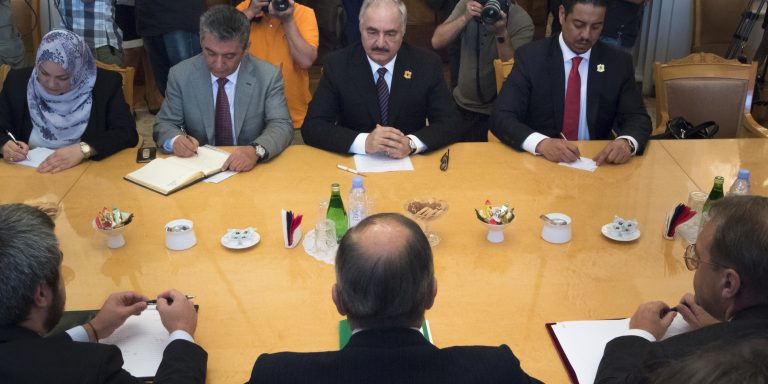
Bottom Line Up Front:
- Regional and outside powers are working with Libya’s rival governments to advance their own interests.
- There has been little evident progress on UN and Western efforts to unify Libya’s political structure through the holding of national presidential and parliamentary elections.
- Russia has used its ties to eastern Libya strongman Khalifa Haftar to extend its influence in Africa.
- Türkiye and Egypt have backed the contending Libyan sides, but a Cairo-Ankara rapprochement might pave the way to unify Libya.
- Russian military contractors run three air bases in Libya – one in the oil basin of Sirte, one in al-Jufra in the interior, and one in Brak al-Shati.
- Haftar is reportedly permitting bases in territory under his control to be used to ship weapons to Sudan’s Rapid Support Forces (RSF), led by Mohammed Hamad Dagalo (Hemedti), which has been in an existential battle for power with the Sudan Armed Forces (SAF) since April 2023.
- The conflict has resulted in the deaths of more than 14,600 people, according to data from the Armed Conflict Location and Event Data Project (ACLED).
- Human rights groups and the U.S. State Department have also provided analysis and documented evidence of war crimes, crimes against humanity, and ethnic cleansing committed by members of the RSF and SAF during the civil war.
Resolving the instability in Libya has become a key goal of two rival powers in the Eastern Mediterranean – Egypt and Türkiye. The two have been at odds for more than a decade over Türkiye’s support for some regional Islamist movements, access to natural gas resources in the Mediterranean, Libya, and other issues. Türkiye has been a supporter of Tripoli, whereas Cairo has backed Haftar and the eastern Libyan administration. Apparently, recognizing that the division of Libya has not benefitted either strategically, Egypt and Türkiye have tentatively begun to ease tensions. Türkiye requires stability in Libya to protect its national interests in the Eastern Mediterranean and to maintain its commercial ties with Libya. The government of Egyptian President Abdel Fattah al-Sisi in Cairo has, over the past two years, begun to distance itself from Haftar, concluding he cannot win control over all of Libya and that his support for the RSF in Sudan is contrary to Egypt’s interests. Egypt has been a key supporter of the Sudan Armed Forces under Burhan. Cairo also prioritizes the foreign exchange earnings of Egyptian workers in Libya and the potential role Egypt could play in Libya’s reconstruction. Suggesting Cairo and Ankara might benefit from cooperation, Turkish President Recep Tayyip Erdo?an visited Egypt on February 14, indicating a pivotal moment of rapprochement. Still, Erdogan has signaled that détente with Egypt, and perhaps eventually with Haftar as well, will not cause Ankara to leave its allies in Tripoli vulnerable. On March 2, Dbeibah traveled to Türkiye to sign a bilateral agreement with Turkish Defense Minister Ya?ar Guler under which Ankara will conduct specialized training for the Tripoli-controlled Libyan armed forces. Still, an acknowledgment by at least some outside powers that a divided Libya is averse to their interests increases the potential for the UN-led reconciliation process to bear fruit.




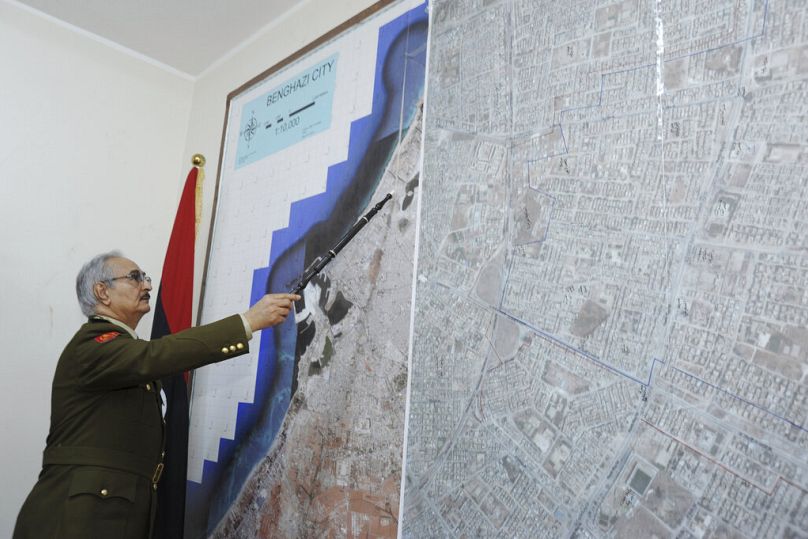
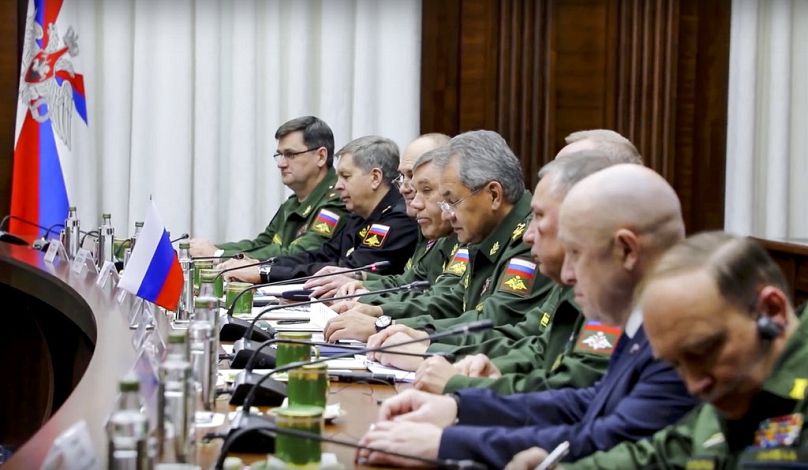
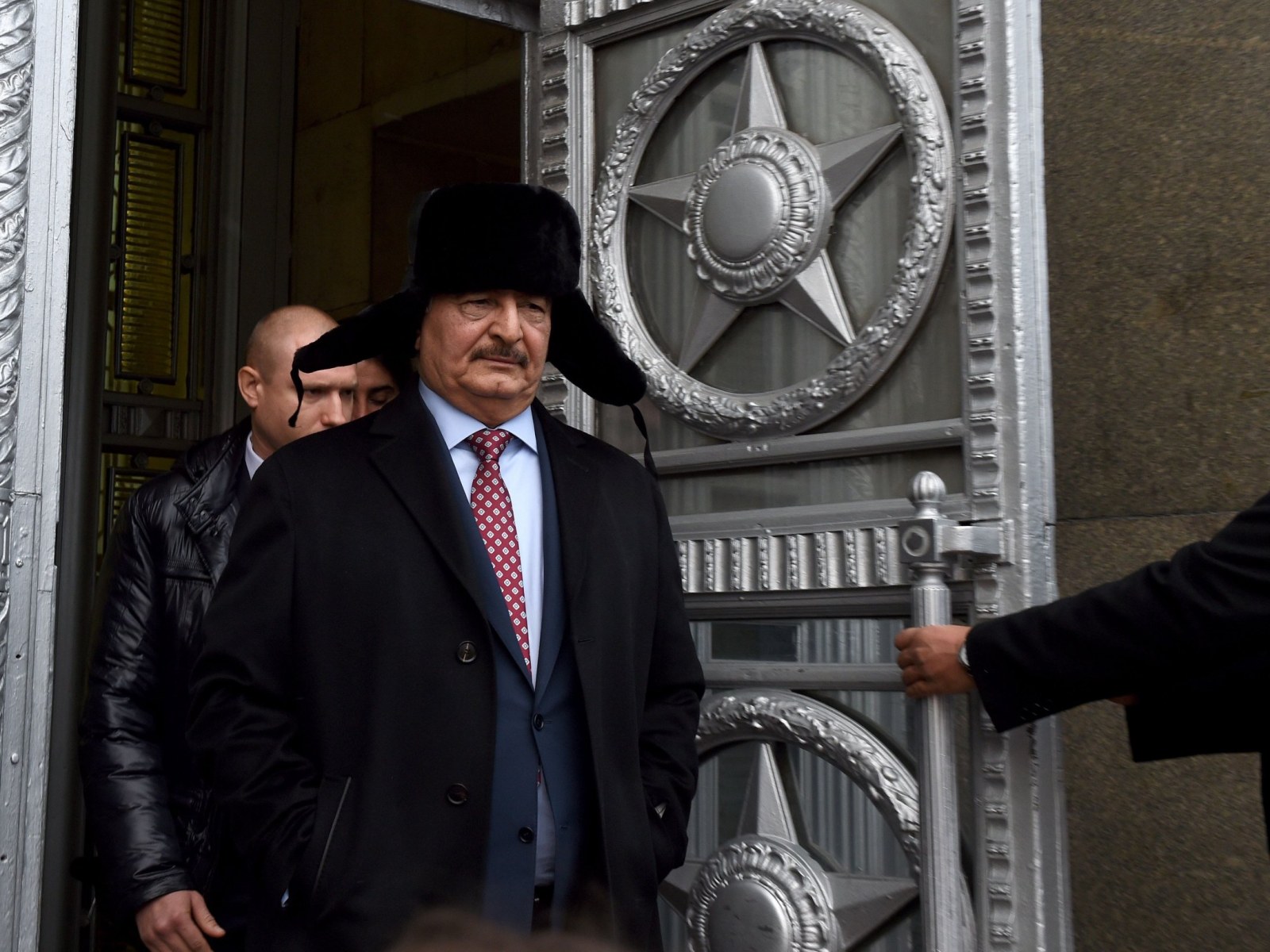
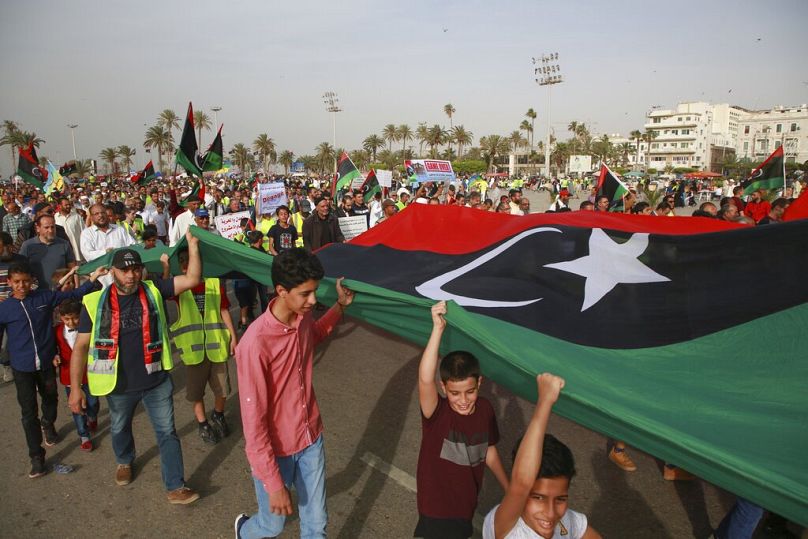



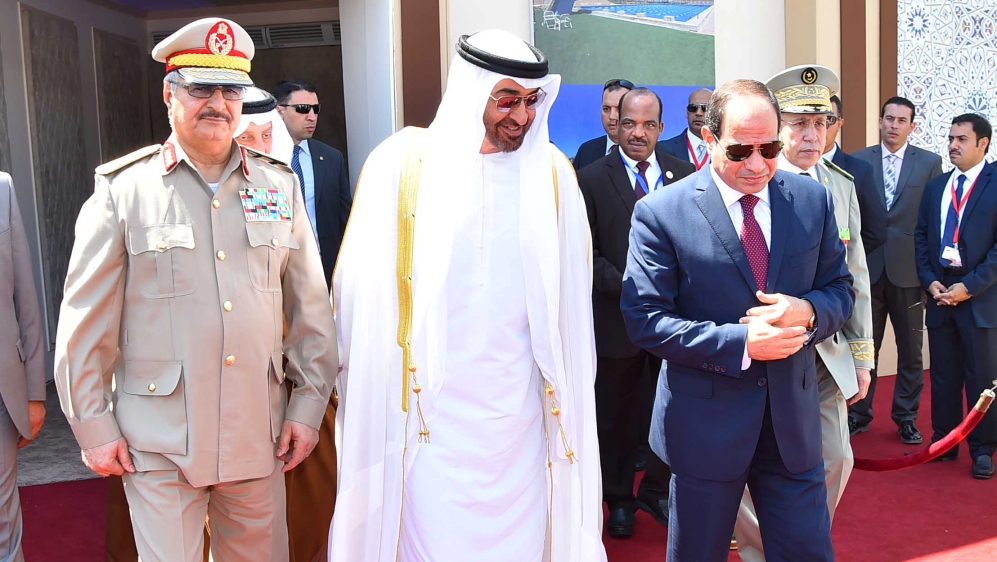
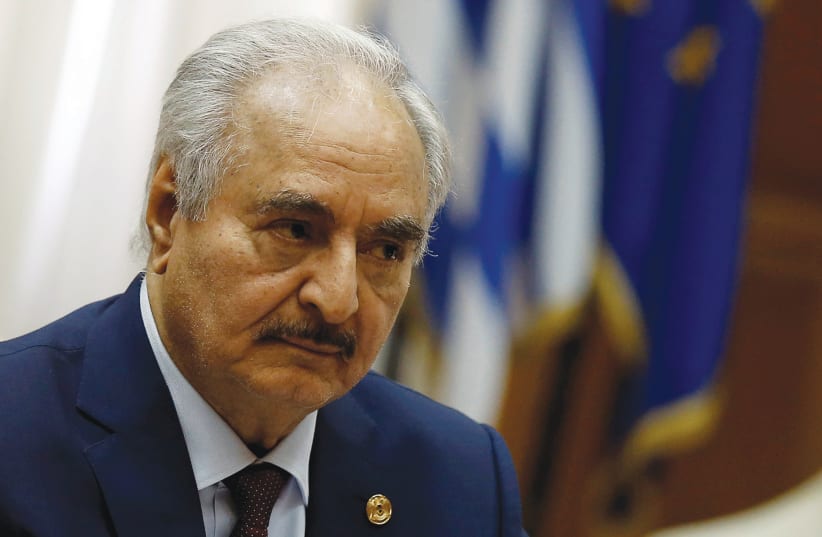
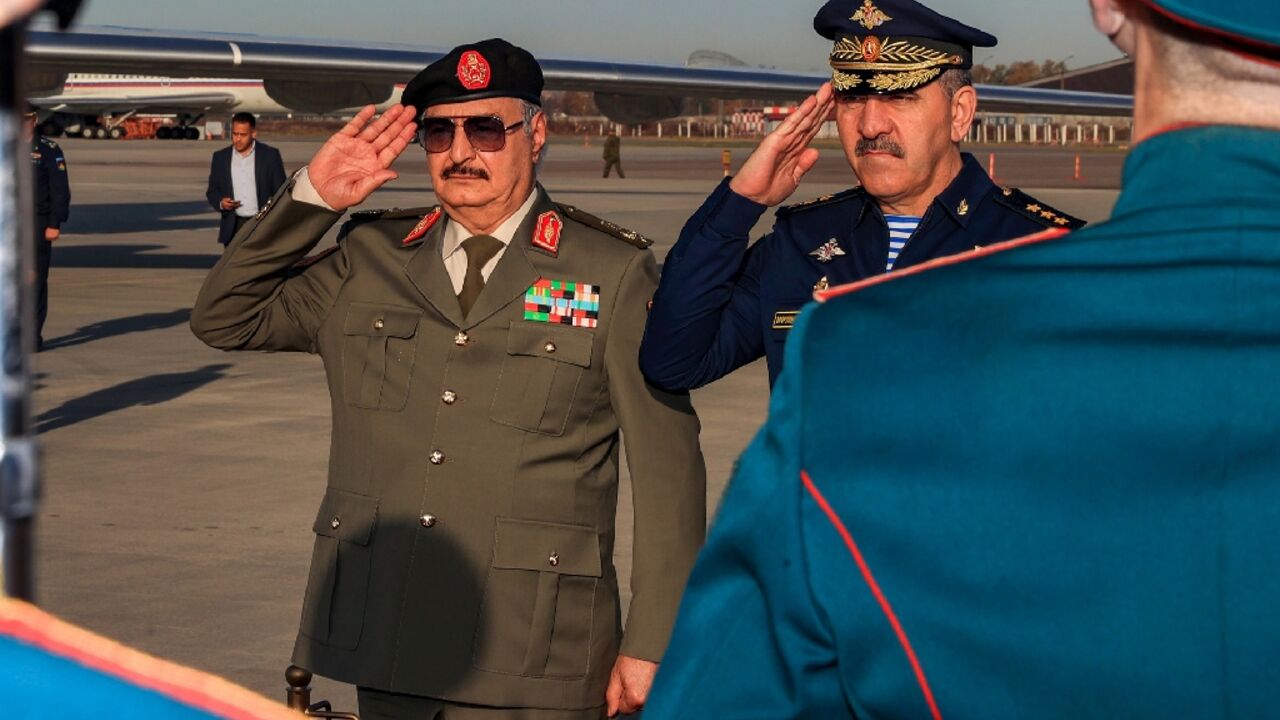
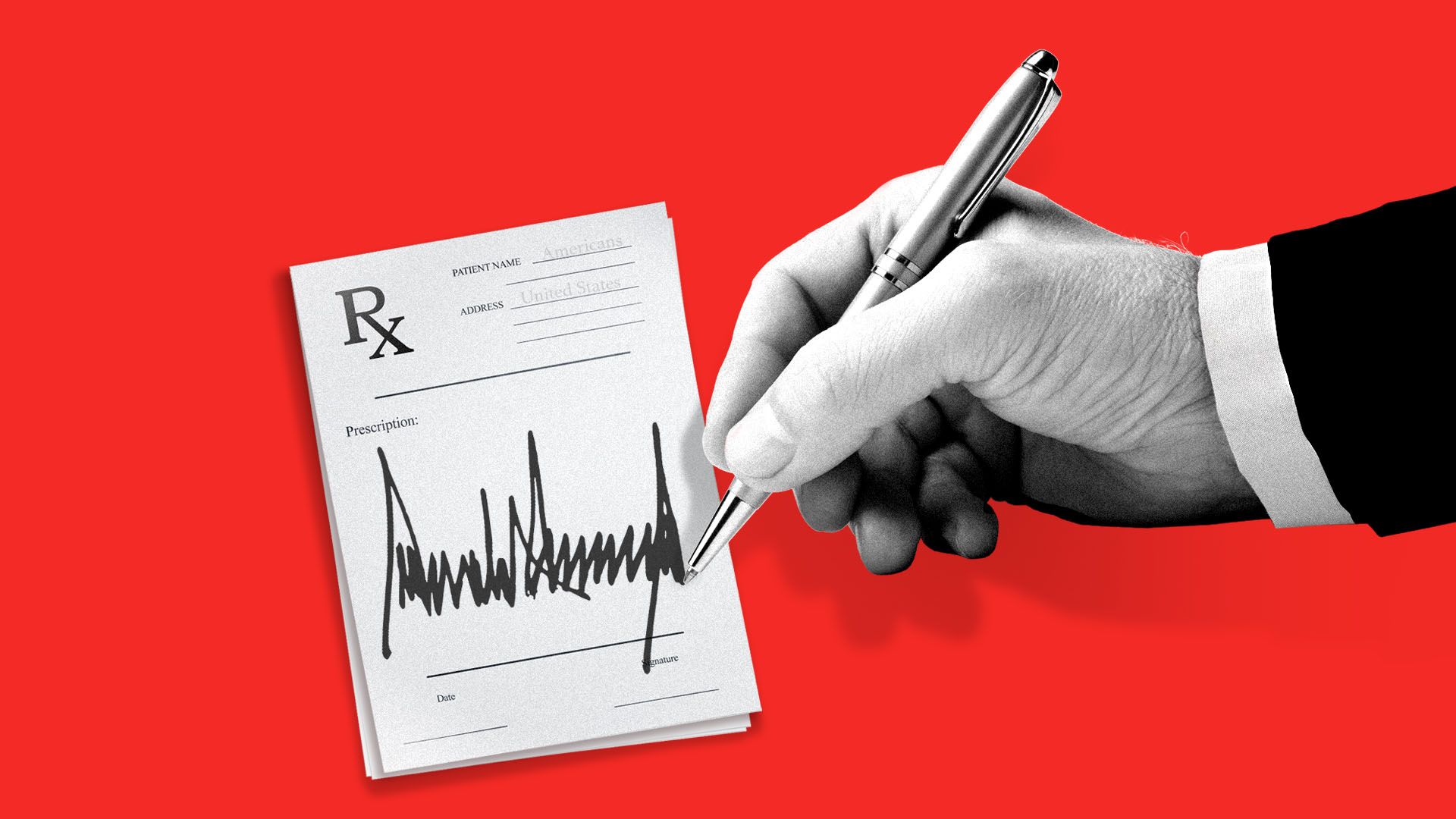

No comments:
Post a Comment